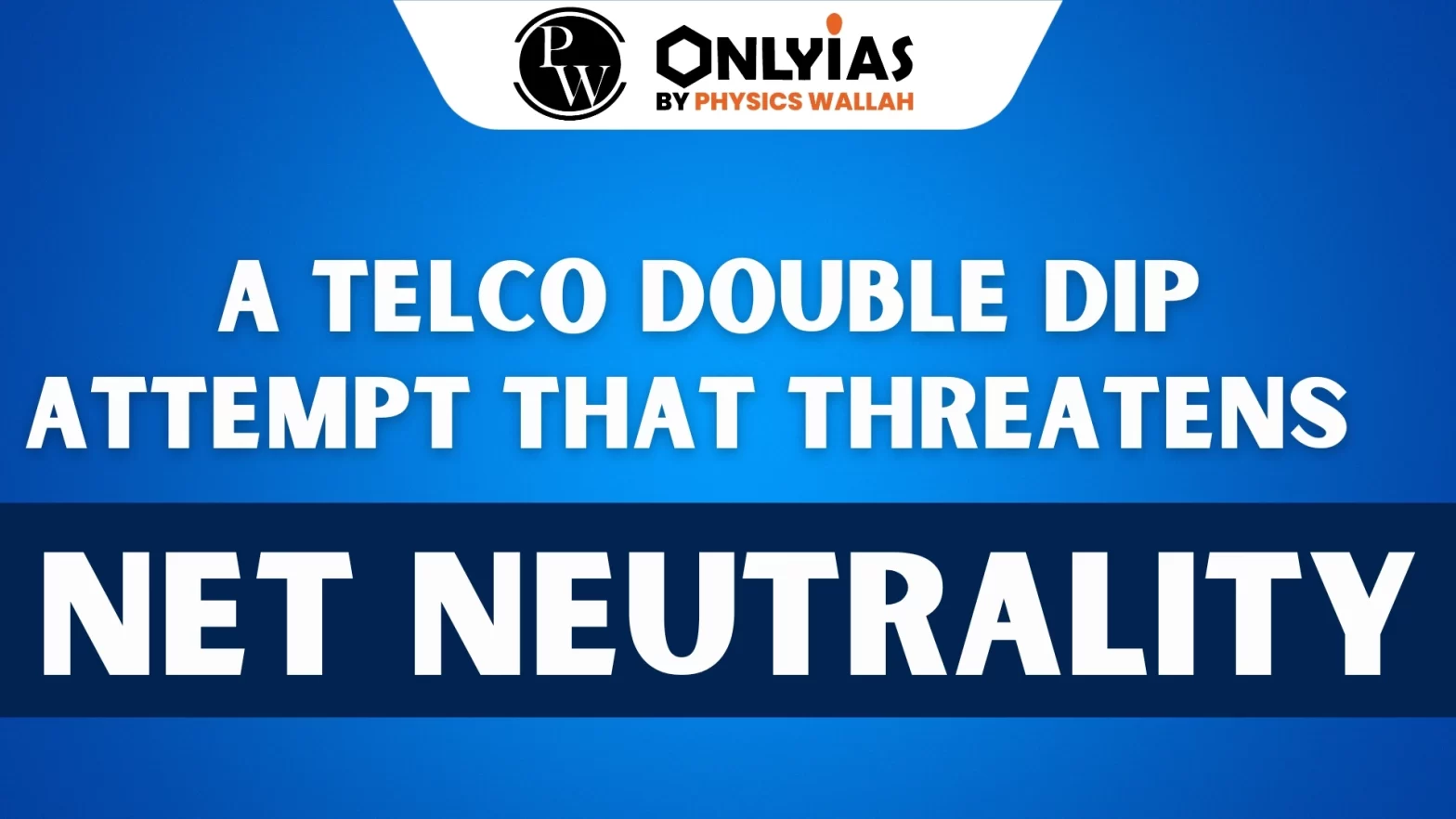Context:
- This article is based on an Editorial “A telco double dip attempt that threatens Net neutrality” which was published in the Hindu. In July this year, the Telecom Regulatory Authority of India (TRAI) invited a comprehensive consultation on the need and possible mechanisms for regulation of Over-The-Top (OTT) services.
| Relevancy for Prelims: Net Neutrality, Regulation Code For OTT Platforms in India, and Telecom Regulatory Authority of India (TRAI).
Relevancy for Mains: Net Neutrality, arising challenges between OTTs and Telcos, and steps that need to be taken to address the issue. |
What is the Net Neutrality?
- Equality for the Internet: As per Columbia Law School professor Tim Wu, (who coined the term “net neutrality” in 2003) net neutrality is to promote an even playing field on the Internet, ensuring that all data is treated equally without discrimination by Internet service providers (ISPs).
Arguments by Telcos
- Hampering Revenues: For more than a decade now, telecom companies have seen revenue from voice calls and Short Message Service (SMS) which come under pressure, as competing OTT services are often free.
- High Investment: At the same time, they have had to invest heavily in upgrading their infrastructure to handle increased data traffic, without necessarily seeing an equivalent rise in revenue.
- Tax and License: OTT services are not subject to the same level of taxation and licensing fees as Telcos, leading to an uneven playing field.
Counter Arguments by Over-The-Top (OTT) Services Providers:
- No Loss to Telcos: Telecom companies do not own the Internet; rather, they provide access to it. Consumers pay the telcos for access services by purchasing data plans.
- Generation of demand for the Internet: OTT platforms generate demand for Internet access and pay for the content delivery networks (CDNs) to create pathways to deliver their content, which provides benefits to telecom companies by providing and charging connectivity to the Internet.
- Accountability: Any attempt to seek cross-subsidies instead of fully accounting for the costs could warrant scrutiny from the Competition Commission.
- Competitive Environment: OTT services compete in their own market on the basis of variety and quality of content, the quality of streaming, ease of navigation and discovery of content, and its availability on multiple devices.
- Consumers’ Choice: In the marketplace for Internet access, consumers are free to choose the provider that offers them the highest bandwidth, data volume, and reliability at an affordable price.
- Distinct Markets: These are distinct because services from one are not substitutable for services in the other. So, it is logical to maintain a separation of costs between these two markets.
- Undermining Net Neutrality: The attempt of telcos to double dip by charging both consumers and content providers undermines net neutrality.
- Against the Consumers: If OTT platforms accepted the demands of the telcos, the incurred costs would impact the subscribers, either through increased subscription fees or degraded service quality, which would only be detrimental to consumers.
India’s Steps for Regulation:
- Basis of TRAI Regulation: Net neutrality formed the basis of TRAI’s regulation on the prohibition of discriminatory tariffs for data services brought out on February 8, 2016.
- Recommendations: Later, on November 28, 2017, TRAI released its comprehensive recommendations, which have largely guided the adoption of this principle in India.
- International Cooperation: The Body of European Regulators for Electronic Communications (BEREC) and TRAI agreed to cooperate in developing technological and policy initiatives for net neutrality.
Also Read: OTT Regulation in India
Conclusion:
It is imperative for all stakeholders to uphold the principles of net neutrality to foster a conducive environment for innovation, competition, and consumer welfare, especially in countries such as India where the Internet is going to be the carrier of all Digital Public Infrastructure (DPI).

